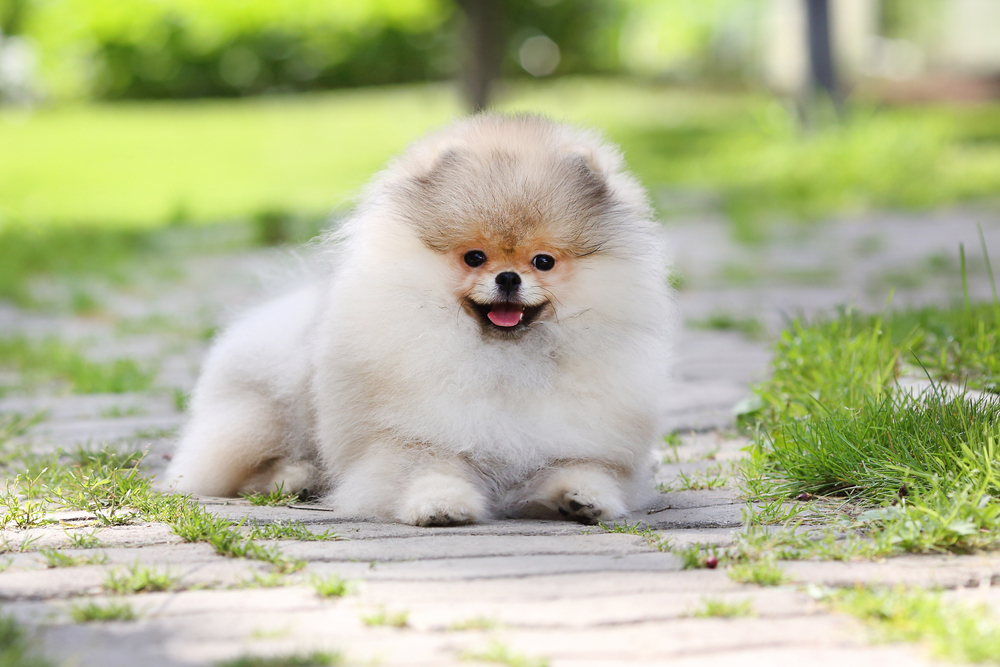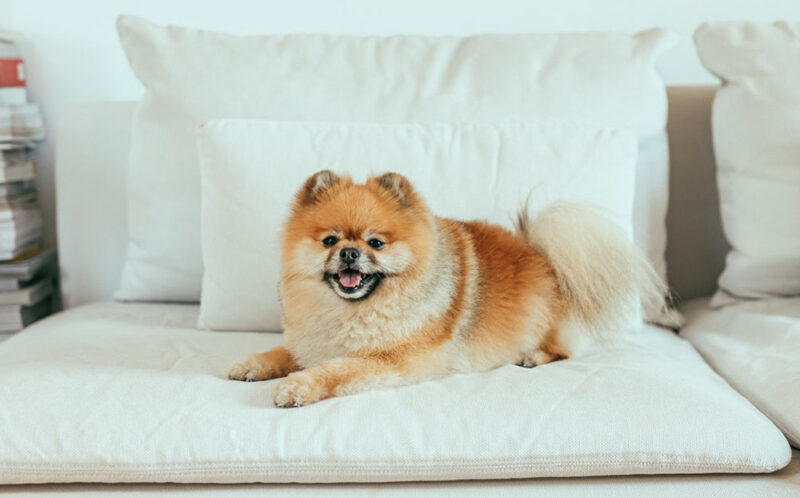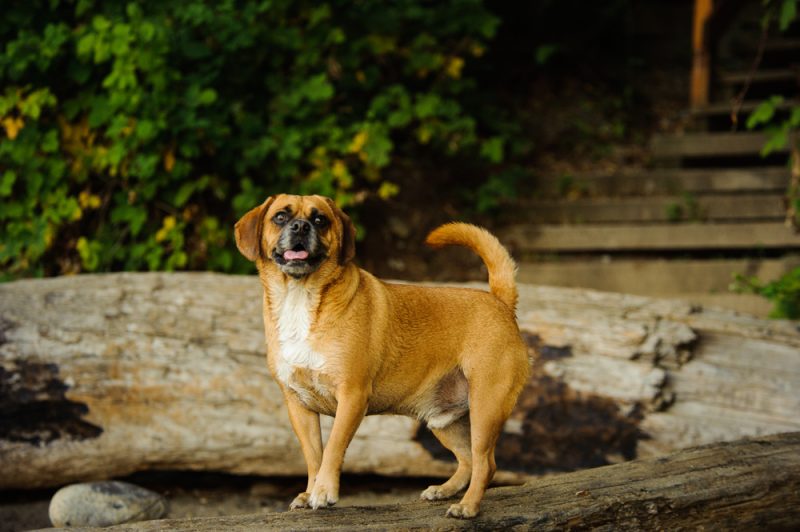In this article
It’s common knowledge that some dog breeds are much more affectionate than others and don’t do as well when left alone. If you’re thinking about getting a Pomeranian, the truth is that they are extremely affectionate and like to be around you most of the day. But the fact that they enjoy your company so much doesn’t mean you can’t ever leave them home alone. You just need to know how to train them and help them to cope better while you are not present. It’s safe to say that an adult Pomeranian can be left alone for a maximum of 6 hours at a time, although this number will change depending on their age and personality.
How Long Can You Leave a Pomeranian Home Alone?
With the proper socialization and training, you can usually leave an adult Pomeranian home alone for 6 hours at a time. Leaving them alone for more than that at once isn’t a good idea, and you’ll likely come home to some sort of mess if you do.

The 3 Factors That Affect How Long You Can Leave a Pomeranian Alone
While you should be able to leave a Pomeranian home alone for a few hours at a time, there are a few factors that can affect just how long you can leave them home alone. Below we’ve highlighted three factors you’ll want to consider before leaving your Pomeranian.
1. Age
Puppies can’t hold their bladder as long as older dogs. For their first few months at home, you shouldn’t leave a Pomeranian alone for more than an hour at a time. You can extend this time frame to about 1.5 hours at the 4-month mark, and once they’re about 6 months old, you can increase that time frame to 2–3 hours. When they reach a year old, you can leave them alone for 4 to 6 hours at a time.
After the 1-year mark, the time frame doesn’t change much, since it depends on your dog’s needs and your schedule. However, as your Pomeranian gets older, they might need more frequent visits outside. It all comes down to bladder control, and you know your Pomeranian best!
2. Socialization/Training
If your Pomeranian has never spent any time by themselves then you might not want to leave them alone for a long time at first. But if you start leaving your Pomeranian early on and slowly extend the amount of time you leave them alone, they’ll likely be better at this.
3. Personality
Some dogs suffer from separation anxiety more than others, but with the current knowledge, we can’t just say that certain dog breeds are more prone to separation anxiety than others. If you get an especially anxious Pomeranian, you might want to schedule shorter visits.
Training and medication can help with this, but it’s something you’ll need to remain consistent with to get the results you want.
Signs of Separation Anxiety
If your Pomeranian isn’t doing well alone, there are a few tell-tale signs. However, you won’t notice some of them unless you set up a camera in your home and monitor their behavior.
According to the ASPCA1, signs of separation anxiety include urinating and defecating, barking or howling, chewing, digging, other destructive behavior, escaping, or pacing. It’s important not to punish your dog for any of these behaviors if they happen.

The 5 Ways to Help Your Pomeranian With Separation Anxiety
If your dog suffers from separation anxiety, there are a few things you can do to try and help them out. Just because they have separation anxiety doesn’t mean you can’t ever leave your home without them again.
1. Talk to a Vet
As soon as you suspect that your dog might be suffering from separation anxiety, you should look for professional help from a vet. Not only can a vet help you understand your dog’s needs and give you some great ideas to help your pet, but they can also give you medications to help calm them down.
If you need to speak with a vet but can't get to one, head over to PangoVet. It's our online service where you can talk to a vet online and get the advice you need for your dog — all at an affordable price!

2. Treats
If you give your dog a treat every time you leave the house, you can counter mild forms of separation anxiety. The treats make it so your dog has something to look forward to when you’re leaving, and it can take their mind off of you leaving home.
It might not seem like much, but once your pet realizes what’s going on, it can make a big difference.
3. Leave Clothes Out
Leaving some of your old, worn clothes out for your pet will give them access to your scent. Your scent can help calm them down when you’re out of the home. While it’s usually not a foolproof way to treat separation anxiety, it usually helps a little bit at least.
4. Turn on the TV
Another age-old trick that will help some dogs with separation anxiety is to leave something on that makes noise in your home. But for it to work, it needs to be something they don’t just tune out. Television works well for this, but you can also turn on music as long as you mix it up for them!
4. Gradual Desensitization
This is one of the best ways for you to help your pup with separation anxiety. Start with small trips out and then slowly increase the amount of time you leave them home alone. This lets them ease into things and teaches them that you will come back.
Start with trips lasting 3 to 5 minutes, then slowly extend the amount of time you’re away.
5. Talk to a Vet
If none of the above tips are working, your dog might suffer from a severe form of separation anxiety. In these situations, the best thing you can do is to get professional help from a vet. Not only can a vet give you some great ideas to help your pet, but they can also give you medications to help calm them down.
If you need to speak with a vet but can't get to one, head over to PangoVet. It's our online service where you can talk to a vet online and get the advice you need for your dog — all at an affordable price!
Conclusion
Getting a Pomeranian doesn’t mean you’ll never be able to leave your home without them again, but it’s important to understand their needs. While Pomeranians aren’t necessarily more prone to separation anxiety than other breeds, their affectionate nature and love of your company mean that they might struggle if left alone for extended periods. Ideally, try not to leave your Pomeranian alone for more than 6 hours at a time. With patience, consistent training, and the right preparation, you can help your Pomeranian feel secure and comfortable during your absence, allowing you both to enjoy a happy and balanced life together.
Featured Image Credit: Cup of Couple, Pexels























